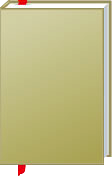

 |

|

The average rating for Old English minor heroic poems based on 2 reviews is 4 stars.
Review # 1 was written on 2011-11-17 00:00:00 Frank J Hnatko Frank J HnatkoThe Finnesburh Fragment is an Old English fragment of a poem that tells the story of a fight in which the Danish prince Hnæf and his retainers are besieged at Finnesburh in Friesland and their attempt to fend off their attackers. The Episode is a section of Beowulf in which a Scop recites the Freswæle (Frisian slaughter) which tells the allusive story of the aftermath of the story contained in the Fragment. This Methuen edition give an introduction to the text of the Finnesburh Fragment and Episode, in which Fry gives a short summery of past scholarship and reconstructions, then gives his own opinions and his own reconstruction of the events. Next comes Fry's excellent edition of the text of both the Fragment and the Episode. While the fragment is actually lost and is only contained in George Hickes's Thesaurus and needs a vast amount of editorship to allow it to make sense. At one important point in the first line of the text, Fry, thankfully allows the text to speak for itself and does not make the unnecessary emendation of the first line of the text from næfre (adverb, meaning never) to Hnæf (personal name), so that "hornas byrnad næfre" still retains the sense of "gables will never burn. Then the battle-young king made a speech." Both Klaeber's third edition and Tolkien's Fragment and Episode amend the text to Hnæf, with the Bliss translation in Tolkien's fragment and Episode being forced to say "gables are burning." Hnæf spoke, the warlike young king." Curiously, the new fourth edition Klaeber and the new Fulk Beowulf Manuscript retain the word næfre in the same way that Fry does. Like all Methuen editions this book includes a vast amount of useful notes and a complete word glossary to the text, in which all problematic words such as eotan are given all variant meanings like Jute or giant/monster, leaving the reader to judge the meaning for themselves. An added bonus to this volume is the geographical map and the print of the transcript from Hickes's Thesaurus. |
Review # 2 was written on 2012-01-29 00:00:00 Lucy Leicht Lucy LeichtA very useful edition. Aside from a very readable translation of the main text, it provides a wealth of additional texts featuring characters and events referenced in the Beowulf narrative (the "analogues" of the title.) Perhaps not recommended for most readers, but as someone who intends to revisit Beowulf again and again, the resources in this book are invaluable. |
CAN'T FIND WHAT YOU'RE LOOKING FOR? CLICK HERE!!!